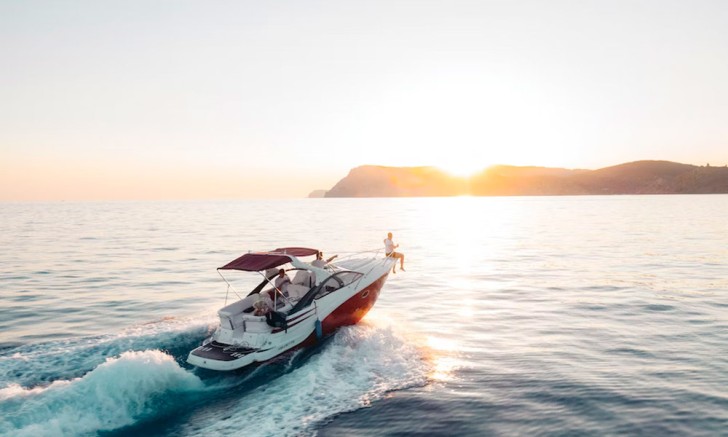However, as a boat owner, it's essential to consider the safety of the boat renters and ensure that the insurance policy covers them, so you don't have to pay for any expenses out of your own pocket in case of an accident. With various types of boat insurance policies available, it can be challenging to determine which one is best suited for your needs.
In this post, we'll examine the many boat insurance policies that are available and assist you in selecting the ideal one for your requirements.
Understanding Boat Insurance Policies
If you're considering boat insurance policies, it's important to have a good understanding of what they offer. Generally, standard boat insurance policies provide coverage for damage to your vessel and liability coverage for accidents involving your boat.
In a 2022 article by The Cabo Sun, it was mentioned that collisions between boats could lead to injuries that may not be covered by standard boat insurance policies. The article discussed a case where two boats collided, resulting in several injuries, highlighting the importance of carefully reviewing insurance policies to ensure that they provide adequate coverage in case of accidents.
It is critical to research and evaluate several insurance plans in order to choose one that matches your individual requirements. Below we have discussed some of the different types of boat insurance policies:
1. Boat Rental Insurance
Boat rental insurance is a type of insurance coverage that provides protection for boat owners who rent out their boats. This type of insurance is designed to help protect the owner from financial losses that may arise from accidents, damages, and liabilities that occur while the boat is being rented out.
It's worth noting that there are many types of boat rental insurance available. According to Merrimac Marine Insurance, LLC, many boat rental insurance policies provide additional coverage options like protection for personal property on board and medical expenses. Similarly, other agencies may offer policies with unique coverage options as well.
2. Liability Insurance
Liability insurance is a type of boat insurance policy that covers you if you are at fault in an accident on the water. This type of policy can cover damages to other boats, property, or individuals, as well as legal fees in the event of a lawsuit.
In a post published by StartupGuys, it was highlighted that having liability insurance is crucial, and one of the top reasons for this is that it can cover expenses such as medical bills, lost wages, and other related costs if a third party gets injured on your property (or in this case, your boat).
3. Comprehensive Insurance
Comprehensive insurance is a more extensive form of boat insurance that covers a wide range of potential damage to your vessel, including theft, vandalism, weather damage, and more. This type of policy can also provide coverage for personal property on board and medical expenses in the event of an accident.
4. Collision Insurance
Collision insurance is a type of policy that provides coverage for damage to your vessel in the event of a collision with another boat, object, or the shore. This type of policy typically covers repairs or replacement of your boat, as well as any personal property on board that may have been damaged in the collision.
5. Agreed Value Coverage
In the case of a total loss, agreed value coverage offers coverage for the whole worth of your vessel. This form of coverage is often more expensive than other types of boat insurance plans, but it can give greater peace of mind in the case of a catastrophic loss.
Choosing the Right Policy
There are a few crucial elements to consider while selecting the correct boat insurance coverage. First and foremost, it's important to assess your individual needs and determine which type of policy will provide the best protection for your vessel.
You should also consider the cost of the policy, the deductibles, and any other policy restrictions or limitations.
Cost
Boat insurance premiums can vary greatly based on the type of coverage you select, the value of your vessel, and other considerations. To get the best deal, go around and evaluate quotes from other insurers.
As per a report published by MarketWatch, boat insurance typically costs around $200 to $500 per year on average. However, based on the most typical boat models, this is only a preliminary approximation.
In reality, boat insurance premiums can vary significantly and may range from less than $100 per year to several thousand dollars annually, depending on various factors such as the type of boat, its value, location, and usage.
Deductibles
The deductible is the amount of money that must be paid out of pocket before your insurance policy begins to provide benefits. Higher deductibles may yield lower monthly premiums, but they may also raise your out-of-pocket spending in the event of a claim.
Coverage Limits
Coverage limit is defined as the maximum amount of money your insurance policy will pay out for a claim. It's critical to pick a policy with enough coverage limits to completely safeguard your vessel and other valuables.
Conclusion
Boat insurance policies are essential for boat owners to protect themselves and their vessels from unforeseen accidents, damage, or theft. We covered the various boat insurance coverage options in this post, such as comprehensive insurance, liability insurance, collision coverage, and agreed value coverage.
When choosing an insurance policy, it is critical to evaluate individual needs, the cost, deductibles, and coverage restrictions. Ultimately, boat insurance policies provide peace of mind and allow for safe and enjoyable boating experiences. So, if you own a boat, make sure to choose the right policy to stay protected so that you and your renters have a worry-free time on the water.
 Editorial staff
Editorial staff

 Editorial staff
Editorial staff


